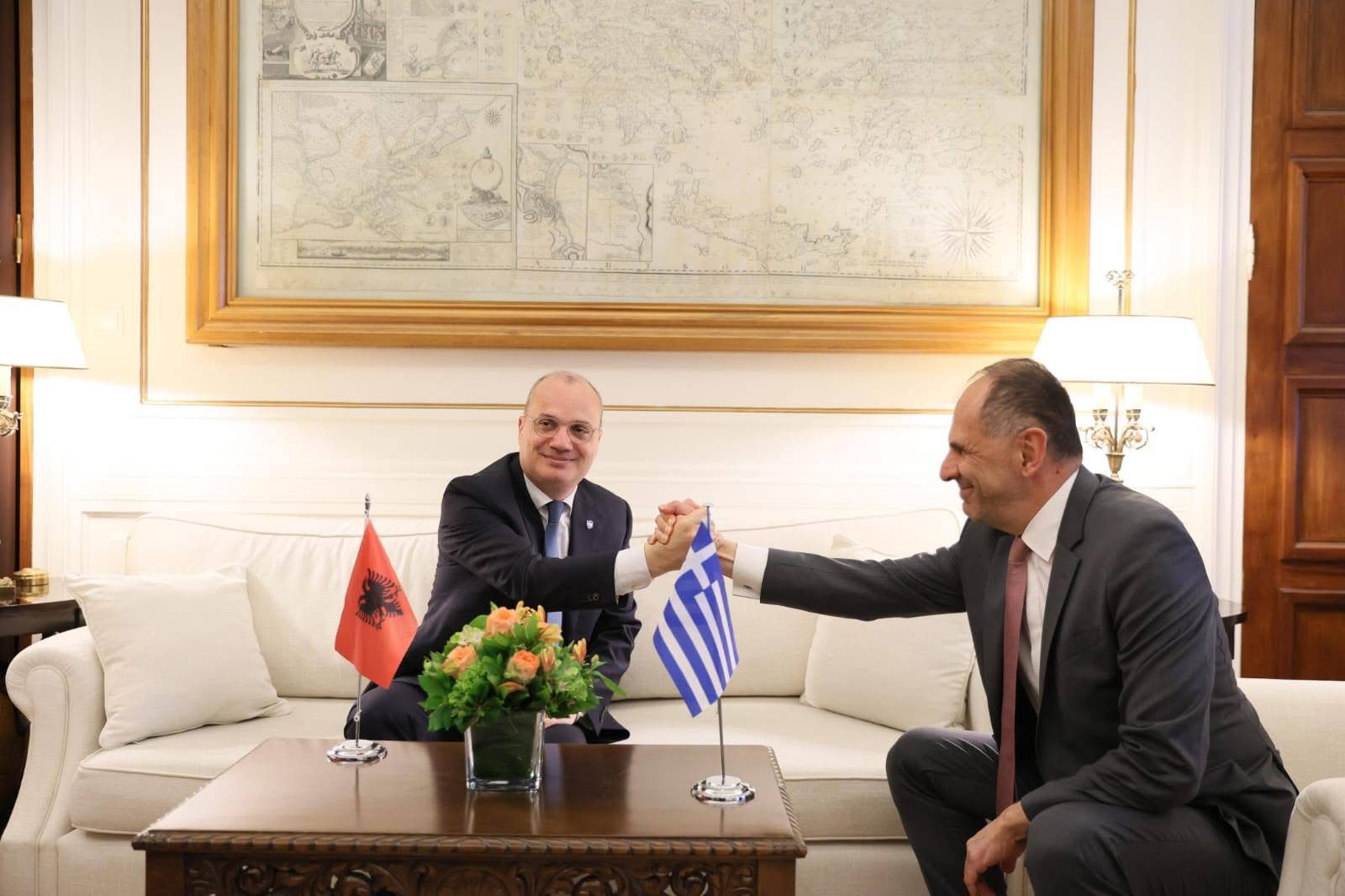Albania and Greece restart maritime talks, seek to move past regional tensions

Albanian Foreign Minister Igli Hasani traveled to Athens Tuesday at the invitation of his Greek counterpart, George Gerapetritis, for what was officially presented as a meeting to deepen bilateral ties. Both sides emphasized the importance of moving beyond Balkan-era nationalism and building a more stable and cooperative relationship. But beneath the rhetoric, the real focus of the visit was the long-stalled maritime border agreement between the two countries.
Why this is important: The maritime dispute between Albania and Greece remains one of the last major unresolved bilateral issues. A breakthrough would remove a persistent source of political friction and give a boost to bilateral relations.
Context: Although Hasani did not explicitly mention the maritime deal in his public remarks, he described the current moment as “the right time” to address unresolved issues with maturity and mutual respect. Both ministers highlighted dialogue and international law as guiding principles for progress.
In 2020, Tirana and Athens agreed to submit their maritime dispute to the International Court of Justice in The Hague, following tensions over Greece’s plans to extend its territorial waters to 12 nautical miles in the Ionian Sea. But political changes in both countries and a string of diplomatic crises stalled the process.
One of the most serious episodes came in 2023, when Greek minority candidate Fredi Beleri—running for mayor of Himara—was arrested on the eve of local elections after being caught in flagrante for vote buying. Greece responded with pressure on Albania’s government and judiciary, threatening to block Albania’s EU accession unless Beleri was released. Albania’s courts sentenced him to two years in prison.
Despite the conviction, Greek Prime Minister Kyriakos Mitsotakis placed Beleri on his party’s list for the European Parliament, where he was elected while still serving his sentence—further aggravating Tirana.
What happened: Hasani and Gerapetritis used the visit to signal a thaw in relations. They avoided direct reference to Beleri but highlighted the need to overcome “stereotypes” and put shared interests first. Recent local elections in Himara, in which another member of the Greek minority (this time backed by the ruling Socialist Party) was elected mayor, helped ease tensions.
The maritime issue remains unresolved since a 2009 agreement—signed under then-Prime Minister Sali Berisha—was struck down by Albania’s Constitutional Court in 2010 after a challenge by Edi Rama’s Socialist Party. When Rama came to power, he began new negotiations under a framework consistent with the court’s ruling, engaging directly with then-Greek Prime Minister Alexis Tsipras.
But the shift in power to Mitsotakis brought a harder Greek line, and the talks stalled again.
What’s next: The Athens visit marks a possible reboot of the stalled maritime talks, though no timeline has been announced. Both sides have reaffirmed their commitment to resolving disputes through international law. If they follow through on their 2020 pledge to go to The Hague, it could finally pave the way for a lasting resolution—and open a new chapter in Albanian-Greek relations.


